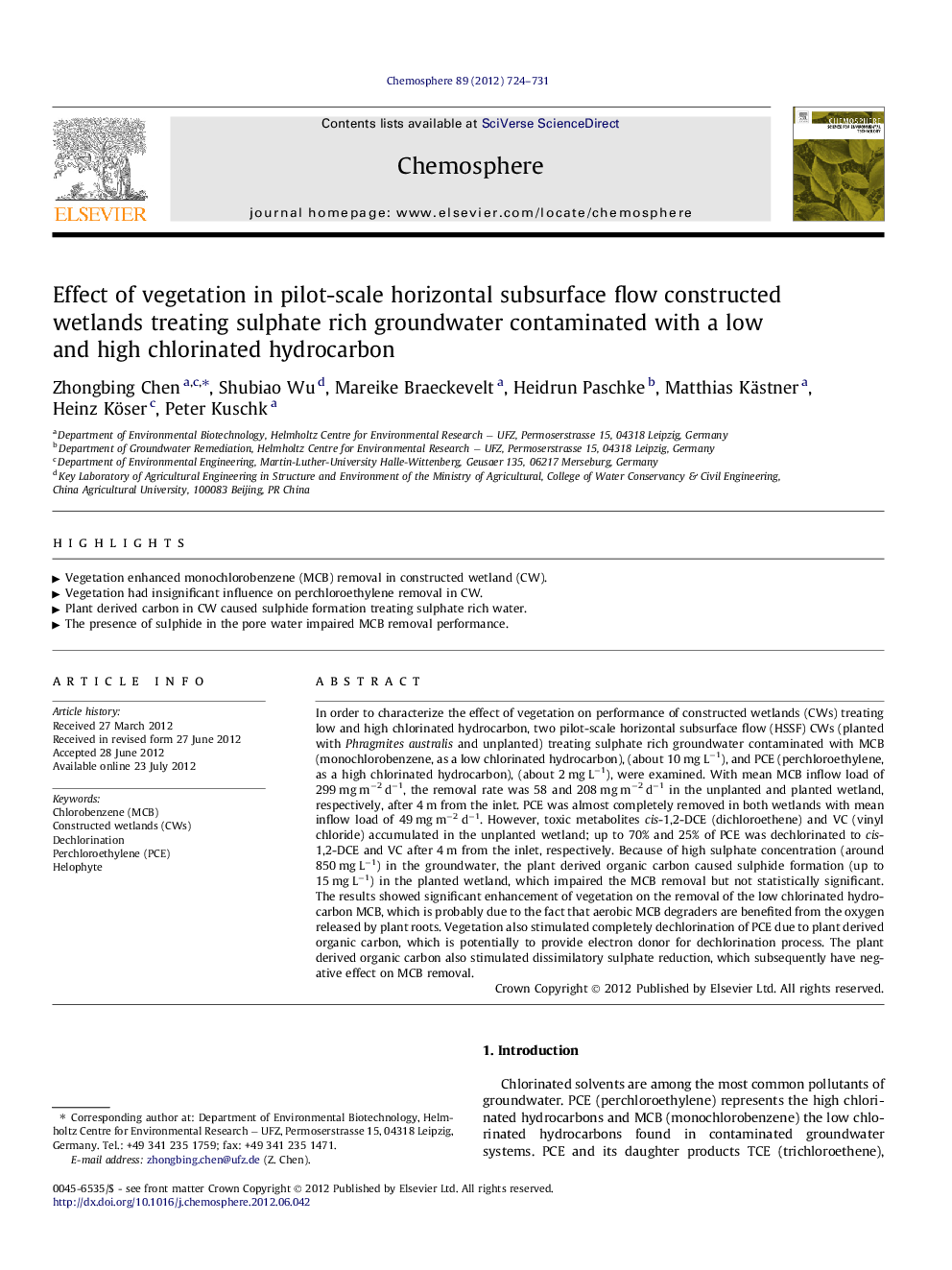| کد مقاله | کد نشریه | سال انتشار | مقاله انگلیسی | نسخه تمام متن |
|---|---|---|---|---|
| 4410032 | 1307523 | 2012 | 8 صفحه PDF | دانلود رایگان |

In order to characterize the effect of vegetation on performance of constructed wetlands (CWs) treating low and high chlorinated hydrocarbon, two pilot-scale horizontal subsurface flow (HSSF) CWs (planted with Phragmites australis and unplanted) treating sulphate rich groundwater contaminated with MCB (monochlorobenzene, as a low chlorinated hydrocarbon), (about 10 mg L−1), and PCE (perchloroethylene, as a high chlorinated hydrocarbon), (about 2 mg L−1), were examined. With mean MCB inflow load of 299 mg m−2 d−1, the removal rate was 58 and 208 mg m−2 d−1 in the unplanted and planted wetland, respectively, after 4 m from the inlet. PCE was almost completely removed in both wetlands with mean inflow load of 49 mg m−2 d−1. However, toxic metabolites cis-1,2-DCE (dichloroethene) and VC (vinyl chloride) accumulated in the unplanted wetland; up to 70% and 25% of PCE was dechlorinated to cis-1,2-DCE and VC after 4 m from the inlet, respectively. Because of high sulphate concentration (around 850 mg L−1) in the groundwater, the plant derived organic carbon caused sulphide formation (up to 15 mg L−1) in the planted wetland, which impaired the MCB removal but not statistically significant. The results showed significant enhancement of vegetation on the removal of the low chlorinated hydrocarbon MCB, which is probably due to the fact that aerobic MCB degraders are benefited from the oxygen released by plant roots. Vegetation also stimulated completely dechlorination of PCE due to plant derived organic carbon, which is potentially to provide electron donor for dechlorination process. The plant derived organic carbon also stimulated dissimilatory sulphate reduction, which subsequently have negative effect on MCB removal.
► Vegetation enhanced monochlorobenzene (MCB) removal in constructed wetland (CW).
► Vegetation had insignificant influence on perchloroethylene removal in CW.
► Plant derived carbon in CW caused sulphide formation treating sulphate rich water.
► The presence of sulphide in the pore water impaired MCB removal performance.
Journal: Chemosphere - Volume 89, Issue 6, October 2012, Pages 724–731